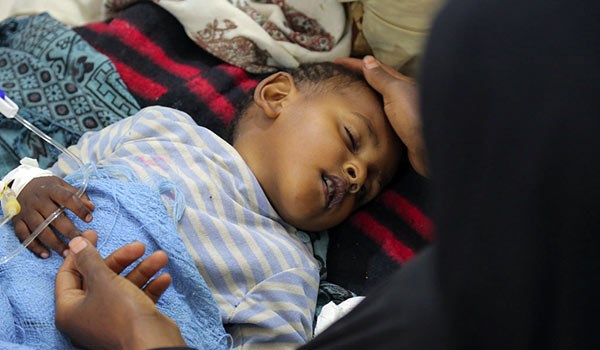
RNA - "The Saudi-led coalition has destroyed all infrastructures in Yemen and has fully laid siege on the country from the sea, air and ground and this has led to the spread of diseases in Yemen, including cholera," Zaifallah Shami told the Arabic-language al-Ahd news website on Tuesday.
Noting that the coalition makes intentional attempts to spread diseases in Yemen and prevents patients from receiving necessary medical care, he said, "They want to bring the Yemeni nation to its knees by spreading diseases after they failed to do so in the battleground."
His remarks came after UN Special Envoy for Yemen Ismail Walad Sheikh Ahmed warned that the Yemeni people are now threatened with the danger of hunger and famine due to the long-term Saudi-led war against the poor country.
"Today, there is a fear for famine and hunger for 7 million Yemenis and they are in need of rapid humanitarian aid," Sheikh Ahmed told reporters in Tehran on Saturday after a meeting with Iranian Deputy Foreign Minister Hossein Jaberi Ansari.
Stressing the need for sending humanitarian aid to all parts of Yemen, he complained that the UN is facing difficulties in sending aid to certain regions, including Ta'iz province.
"I use this opportunity to call for reopening Sana'a airport, specially for humanitarian affairs," Sheikh Ahmed said.
He also appreciated Iran's support for the establishment of peace and stability in Yemen, and stressed that the crisis in the Arab country has no military solution.
Yemen has been facing war by a Saudi-led coalition since March 2015. Leading a number of its vassal states, Saudi Arabia launched the military aggression on Yemen to reinstall a Riyadh-friendly former president. The war, however, has failed to achieve either of the goals, morphing into a protracted conflict and causing a humanitarian crisis in Yemen.
UN-brokered talks between Yemen’s warring sides have also failed to end the conflict so far.
Iran has repeatedly called for a swift end to the brutal Saudi-led military campaign.
The war has so far killed over 14,300 Yemenis.
The US and the UK have been providing the bulk of the weapons used by the Saudi-led forces against Yemen. The US is also providing other assistance, including the provision of intelligence, to the invading forces.
The aggression has been accompanied by a Saudi-led naval and aerial blockade on Yemen.
It has also taken a heavy toll on Yemen’s infrastructure and led to a cholera epidemic in the country. Thousands of people have died since the outbreak of the cholera epidemic in April, according to the latest figures provided by the World Health Organization (WHO).
An estimated 70 percent of Yemen’s 28 million population is said to be in desperate need of humanitarian aid.
Last week, Yemen’s blood bank appealed to the international community to support the center as its medical supplies have nearly run out.
847/940